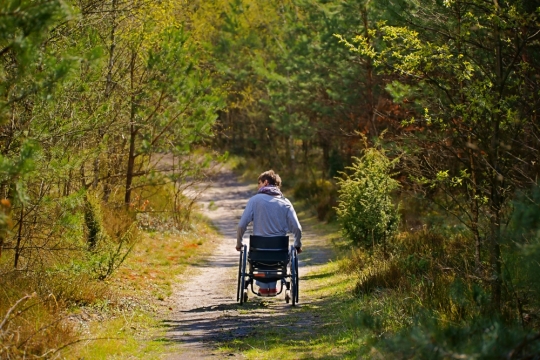I’ll begin this article by sharing some facts about Finland, where I live. We’re a European country and a member of the European Union. We share land borders with three countries: Norway, Sweden, Russia. Thus, we are a Nordic country. In total, our population is 5.5 million and the majority of the population is concentrated in the southern region. The capital and by far the largest city is Helsinki. Expats usually live in the capital region, which includes Helsinki, Espoo and Vantaa.There are four seasons in Finland. The climate of Finland is characterized by long, cold winters, and by short, mild and moderately rainy summers. However, in Southern Finland, where my hometown of Helsinki is located, summer is almost as long as winter. Temperatures vary from +30 C to -30 C. There are exceptions: a few years ago, the temperature was higher on Christmas Eve than it had been on Midsummer Eve, six months earlier. That isn’t the norm, but it has happened! The country is snow-covered about three to seven months of the year depending on the area, but this varies year from year.
Using a wheelchair is difficult when the country is snow-covered. If you are a tetraplegic, an electric wheelchair or someone experienced to push the wheelchair will be needed. I used a mobility scooter for four years and got stuck countless times. Nowadays, I have a 4WD wheelchair that helps with those issues.
Finnish and Swedish are the two official languages of the country, although Finnish dominates nationwide. It’s worth noting that it’s relatively easy to get by without speaking Finnish, since younger Finns speak fluent English. However, learning the local language will improve your life in Finland immensely. If you understand the language, you will better understand the culture.
We Finnish people are not big on small talk. In Finland, silent moments during the conversation are totally okay. And when you ask us ‘what’s up?’, we will tell you exactly what’s going on in detail.
Accessibility
In general, cities and towns are accessible in Finland. According to law, buildings such as shops, offices and bureaus must be accessible. Public transport is usually accessible in the bigger cities. As a wheelchair user, you can travel by long-distance trains all the way from Helsinki to Lapland, Northern Finland. It’s a ten hour trip, if you’re brave enough.
Accommodation
To be honest, it’s not easy to find an accessible flat in Finland. There aren’t specific markets for accessible homes. In practice, you need to have a look at advertisements in newspapers or online. Or you can advertise yourself as a prospective tenant in the local press or on social media.
The law means that new flats are mostly accessible, whereas old flats often aren’t.
Sellers and landlords won’t usually mention a flat’s accessibility without being asked first. Ensure you carefully read the information provided about the flat’s listings. Is it part of a block? Is there an elevator? Is it on a hillside? Pay attention to the photos too.
Rights Of And Services For The Disabled
Finland is a welfare society, meaning that as a person with disability, you can live well.
The non-discrimination act guarantees equality for everyone as a fundamental right. In this respect, personal characteristics such as disability must not affect a person’s potential for accessing education, finding employment or receiving various services.
However, bear in mind that this does not guarantee social security and/or universal healthcare. A Finnish citizen and a international tourist will have different access to services.
As a general rule, if you are a permanent resident in Finland, you’re entitled to Finnish Social Security including healthcare and social services. On top of that, you can receive Kela (which translates as social insurance institution) services and benefits such as access to rehabilitation and sick allowance.
See below for links to sites defining permanent residence and for government sites and resources. In addition, ensure you contact Kela before moving to Finland.
Healthcare
Finland offers its residents universal healthcare. If you become ill, contact your local health centre, where you can make an appointment. If you need the services of a specialist, first book an appointment with an MD. When necessary, a doctor will give you a referral to a hospital specialist. As a person with disability, you can also get a referral to physiotherapy or occupational therapy. A person with a disability doesn’t need to buy their own mobility aids, they can apply through the municipal or healthcare district.
In addition, every employee in Finland is entitled to occupational health care. Occupational health care is a service provided and paid for by the employer for the purpose of supporting employees’ work ability. Sometimes the agreement will cover medical care as well. Contact your employer to find out what kind of occupational health care is available to you.
Social Services
Disability services are intended for people who, due to their disability, require services that are not offered in the standard municipal services. The goal is to ensure equal opportunities of participation for disabled residents. Permanent residents, including disabled residents, are often entitled to assistance at work, at home and in leisure time. This is provided by the municipals. The most popular services are transportation, personal assistants and help with home modifications for accessibility. These services are free of charge, except for transportation.
I have lived all my life in Finland. Moreover, I been a wheelchair user for eight years. In my experience, accessibility has improved a lot in the capital region.
by Ronja Venesperä
Useful Links
• A definition of a permanent resident.
• Kela (Phone only, you can’t email).
• Kela’s brochure for those moving to Finland.
• A more general info package about Kela and its benefits can be found here.

